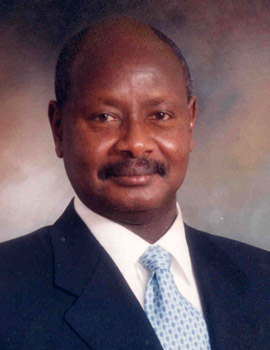UGANDA PRES. UNSURE ON GAY BILL

President Yoweri Museveni
Uganda’s President Yoweri Museveni says he may not sign the dreaded Anti-Homosexuality Bill, recently passed by his country’s parliament; but this might not stop it from becoming law.
According to New Vision, Museveni made the statement at a Christmas ceremony at the Pentecostal Church at Daystar Cathedral in South West Uganda.
“I will first go through [the bill]. If I find that it is right I will sign but if I find that it is not right I will send it back to Parliament”, he said.
The comment was apparently in response to a call by the head of the Pentecostal Churches in Uganda, Apostle Joseph Serwadda, for the president to sign the bill into law.
The bill was passed last week by conservative MPs, apparently without the full support of the Ugandan government.
Museveni has previously acknowledged that if the bill becomes law it could have a significant impact on the country’s international relations, saying that he “must take into account our foreign policy interests”.
In addition to threats of withdrawal of foreign aid by some governments, powerful British businessman Richard Branson also condemned the law’s passage and said that he would no longer consider doing business in the country.
“…the dreadful witch hunt against the gay community and lifetime sentences means it would be against my conscience to support this country,” he said on his blog.
Branson urged “other companies worldwide to follow suit. Uganda must reconsider or find it being ostracised by companies and tourists worldwide”.
There remains some confusion, however, as to the real influence Museveni has over the bill’s fate.
While international groups such as Amnesty International have called on him to veto the bill, other LGBT rights activists argue that Museveni does not have the power to stop it, only delay it.
US based activist and lawyer Melanie Nathan has insisted that because it is a private member’s bill, if Museveni does not sign it, it will revert to parliament where it could then still be made into law with a two-thirds majority vote.
“At that point there is NOTHING Museveni can do,” she said on Facebook, adding that if the bill does become law it “can and probably will be challenged in the courts as being unconstitutional, which it clearly is”.
Leave a Reply